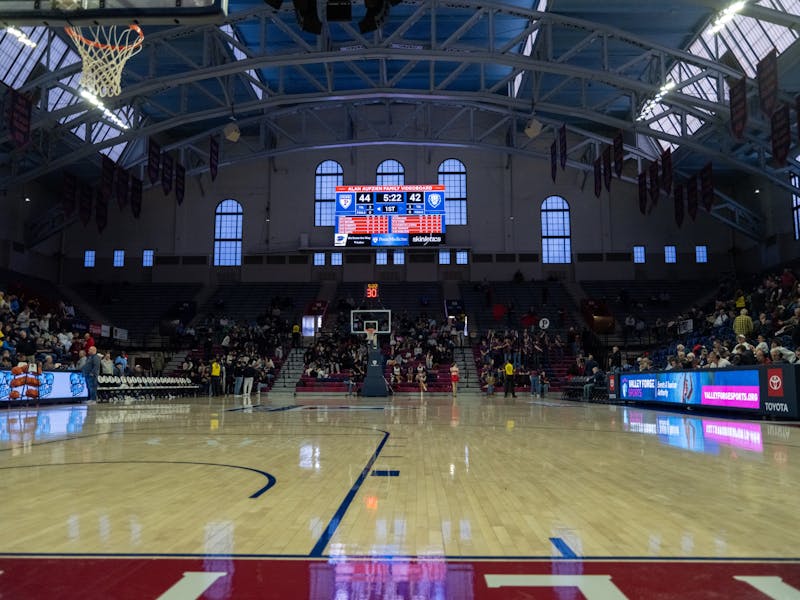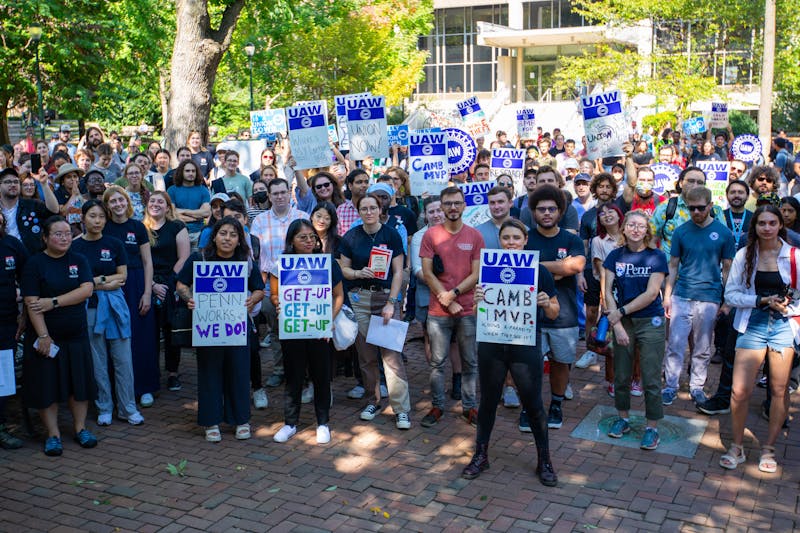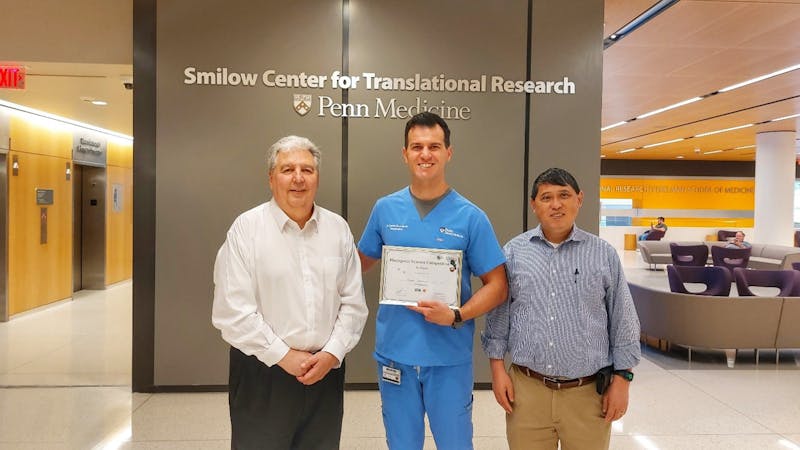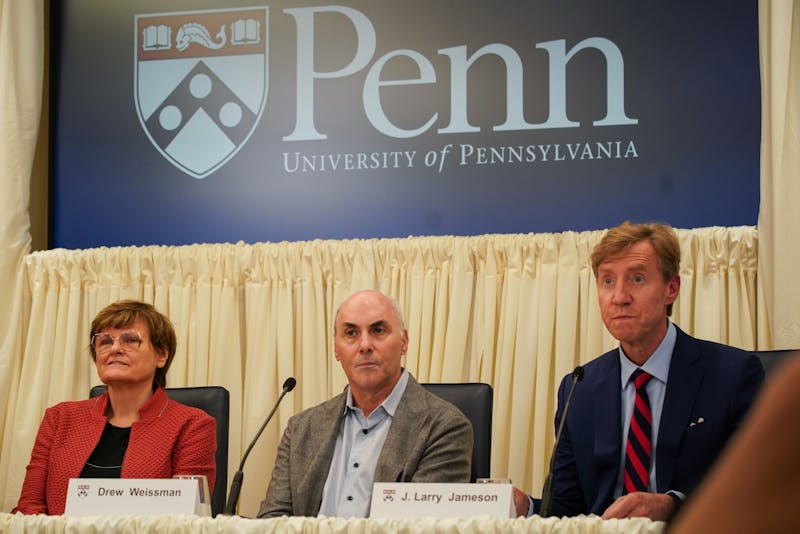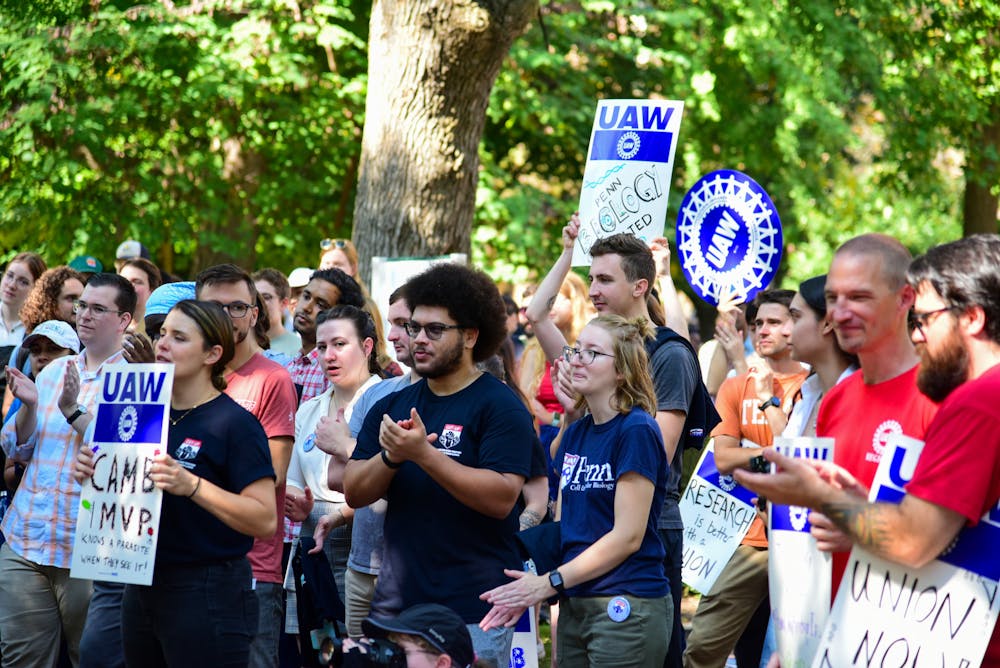
Penn argued that some graduate students do not qualify to be included in unionization efforts, delaying the National Labor Relations Board election.
The NLRB conducted a hearing on Nov. 2 and 3 to settle disagreements between graduate students and the University regarding the inclusion of certain Penn community members in Graduate Employees Together-University of Pennsylvania's union filing. While the two parties were able to come to a consensus about the inclusion of most graduate workers in the group, Penn maintained that first- and second-year biomedical graduate students and educational fellowship recipients working on lab rotations should not be included in the body.
According to GET-UP organizer and second-year pharmacology doctoral student Jordan Williams, the purpose of the hearing was to address stipulations made by the University regarding which Penn community members could be included in the proposed bargaining unit.
University spokesperson Ron Ozio wrote in a statement to The Daily Pennsylvanian that Penn and GET-UP agreed on the inclusion of all proposed members except for approximately 300 graduate students, which Williams said referred to educational fellowship recipients.
“Penn has always and continues to greatly value the research contributions of all our graduate students as central to the academic mission of the University," the spokesperson wrote to the DP. "Penn believes that our graduate students in lab rotations — a small group of first- and second-year students in Biomedical Graduate Studies (BGS) and first-year students in Biology — are engaged in educational training and not in service to the University.”
The University offered GET-UP the opportunity to vote in an election this semester, according to the spokesperson, but that the representatives "did not agree to this," delaying the election. The spokesperson added that the NLRB is set to issue a decision after receiving post-hearing briefs by Nov. 21.
Williams said that Vice Provost for Education and philosophy professor Karen Detlefsen, testifying on behalf of the University, claimed that biology rotational students do not actually make significant contributions to research. Instead, she argued that any work that they produce is done so for the purpose of learning how to conduct research, and any meaningful results from that work are produced by accident.
Williams said that GET-UP representatives were also upset with a testimony from Kelly Jordan-Sciutto, Associate Dean for Graduate Education and Director of Biomedical Graduate Studies, who said that the first two years of work done by BGS students are spent learning how to conduct research rather than actually contributing to research.
“The majority of BGS students come in with prior research experience. … We are not necessarily learning how to conduct research from scratch. So that's just blatantly false and really undermines the talent that is recruited into the program,” Williams said, adding that she was "disappointed" by the comments.
Luella Allen-Waller, sixth-year Biology graduate student in the School of Arts and Sciences and GET-UP organizer, testified during the hearing about four papers that she has published during her time at Penn in an effort to demonstrate her contributions to research as a rotational biology student.
At least eight graduate students attended the hearing on behalf of GET-UP on both days, according to Williams.
Kyla Mace, a fifth-year doctoral candidate in pharmacology and student who did rotations through BGS, said that they were frustrated with the Penn’s lawyers lack of knowledge of surrounding the research and publication processes of the department.
One of the arguments made by the lawyers, Allen-Waller said, was that the paper Allen-Waller contributed to was published several years after they conducted their research, meaning that their lab work did not actually contribute to the paper.
“We were making the point that rotation students do contribute meaningful research to our labs and to Penn. And here's the proof, because we're listed as co-authors on papers,” Mace said.
Allen-Waller said that regardless of whether research produces positive or negative results, it is still considered a contribution. She cited another witness’s experience contributing research to patent-pending technology for the University.
“Penn will ultimately own that patent and make the lion's share of the profit off of that patent. And so I think it's an incredibly clear case that first year graduate workers are doing research that contributes to Penn's bottom line,” Allen-Waller said.
The Daily Pennsylvanian is an independent, student-run newspaper. Please consider making a donation to support the coverage that shapes the University. Your generosity ensures a future of strong journalism at Penn.
Donate






